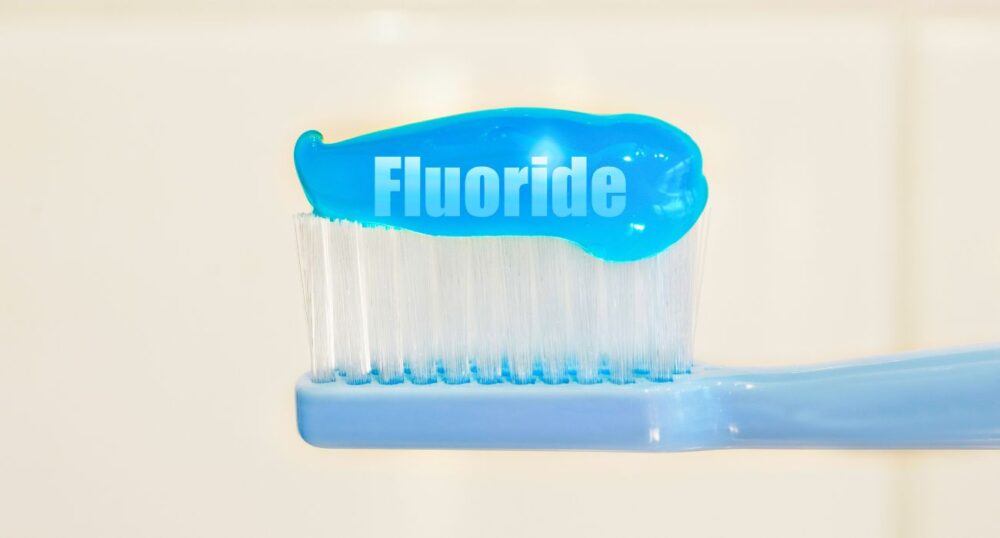Attorney Michael Connett recently spoke with The Dallas Express about the federal lawsuit he brought against the EPA for failing to protect the public from fluoride.
“CDC named fluoridation of drinking water one of 10 great public health interventions of the 20th century because of the dramatic decline in cavities since community water fluoridation started in 1945,” CDC’s website reads.
Connett could not disagree more with this statement.
“If fluorination truly was one of the top 10 public health achievements, you would think … the other Western industrialized powers would be doing it,” Connett said. “If you look at World Health Organization data, those countries have the same levels of tooth decay or less.”
Connett points to fluorosis as one of the primary and undisputed risks of fluoride consumption. Fluorosis most prominently affects the teeth by causing striations or blotching. However, this is not the worst consequence of fluoride, Connett said.
One study from 2016 found a strong negative correlation between the amount of fluoride in drinking water and children’s IQs. These findings have been replicated numerous times, including in animals. Another study found a significant increase in depressive behavior among rats that consumed fluoride.
Another startling study revealed the relationship between fluoride and hypothyroidism. An NIH-funded study found that hypothyroidism is strongly and almost linearly associated with fluoride consumption. The study concluded that even relatively small amounts of fluoride can retard the function of the thyroid gland.
Connett noted that fluoride proponents often argue fluoride is only dangerous in high doses. The NIH says 4 mg daily of fluoride is safe for the typical adult man.
DX asked Connett if fluoride is like inorganic mercury, where small doses can accumulate in the brain and cause harm over time after consumption, or if fluoride is like glyphosate, where the body passes it quickly but is in so many things that even supposedly “safe” doses can quickly add up to unsafe levels. Connett answered that fluoride is the worst of both worlds. Research shows fluoride bioaccumulates in the bones of both people and animals. He claimed that it is also an intentional or unintentional ingredient in so many food products that people are frequently consuming far above the allegedly safe dosage.
Fluoride advocates argue that direct application to the teeth can help defeat cavities through “re-mineralization.” Connett accepts that dental fluoride treatments could have some benefits. However, concerns remain about how the fluoride eventually moves from the teeth into the digestive tract.
Connett said his investigation for his lawsuit uncovered that industries like steel and aluminum largely funded research on fluoride in the 1950s as a means of finding something to do with a common waste product. His beliefs appear to be supported by independent research conducted by Professor Frank Zelko, the author of Make It a Green Peace! The Rise of Countercultural Environmentalism.
In an online article about fluoride, the professor claims, “In all likelihood, the only significant problem that would arise from an end to fluoridation is that the Florida phosphate industry would have to find a different way — no doubt one more expensive and less convenient — to dispose of its toxic waste.”
Some people see the case differently. Prominent political figures in Texas, like former state senator Don Huffines, have argued this is about governmental ego. After a screening of a film about Connett’s lawsuit, Huffines, who was moderating a Q&A between Connett and the audience, said that the major health agencies like the CDC or HHS do not want to be caught in “a 70-year-old lie,” as previously reported by DX.
Connett pointed to the interests of the major oral health companies that have promoted fluoride in numerous products like toothpaste as having an interest in maintaining fluoride’s reputation. However, he saved his harshest words for the American Dental Association (ADA).
“The American Dental Association has very aggressively promoted fluoridation for a long time … [and] dentists, 80% of whom do not take Medicaid … vigorously oppose efforts to bring about low-cost dental therapies for people who are in need of care,” Connett said.
“Fluoridation is very attractive in that sense,” he added. “Put some industrial pixie dust in your water and you can appear like you are trying to do something about the problem of tooth decay, but you are not doing anything that actually threatens your professional monopoly.”
DX contacted the ADA for comment on Connett’s criticism but did not receive a response. However, the organization’s website says, “The ADA recognizes the use of fluoride and community water fluoridation as safe and effective in preventing tooth decay for both children and adults.” A latter section on the same webpage advocates for fluoride supplements to prevent tooth decay in children.
After years of legal wrangling, trials, and retrials, arguments in Food & Water Watch, Inc. v. EPA concluded in March. Now, all that remains is for the federal judge in the Northern District of California to issue his decision on whether fluoridation at levels occurring throughout the country presents an unreasonable risk of injury to health under the Toxic Substances Control Act.
If the answer is yes, Connett claims the EPA will be compelled to ban fluoridated water nationally. This means that fluoride would be forbidden in every state and locality.
Do not expect too many multi-million dollar class actions to follow suit if his case is successful, however. Connett explained at the documentary’s screening that there are a lot of procedural barriers in the law that would bar most cases.
While the country awaits the court’s decision, some jurisdictions in Texas have taken matters into their own hands.
“After careful consideration and thorough evaluation of scientific research, public opinion, and the potential health and environmental impacts, we have concluded that it is in the best interest of our community to discontinue the practice of water fluoridation effective December 1, 2023,” Shean R. Dalton, general manager of Brushy Creek Municipal Utility District, wrote to residents last fall.


